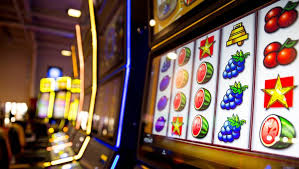
Slot Game Sound Design: The Unseen Power of Audio Psychology
You know that feeling. The lights are flashing, the reels are spinning, and then… a cascade of celebratory chimes, a triumphant fanfare, maybe even a little jingle that just makes you feel good. That’s not an accident. It’s a meticulously crafted symphony designed to keep you engaged, entertained, and, frankly, coming back for more.
Let’s pull back the curtain. The sound in a slot game isn’t just background noise. It’s a powerful psychological tool, an invisible hand guiding your emotions and shaping your entire experience. We’re diving deep into the world of audio psychology and immersive experiences in slot design.
Why Your Ears Are the Real VIPs
Think about your favorite movie without its soundtrack. The tense scene loses its edge. The joyful moment feels flat. Slot games operate on the exact same principle. Sound creates atmosphere. It builds anticipation. And, crucially, it reinforces behavior.
Here’s the deal: our brains are wired to respond to sound on a primal level. A sudden, loud noise triggers a startle response. A soft, melodic tune can induce calm. Game developers use this neurological wiring to their full advantage, creating an immersive audio experience that makes you forget you’re just tapping a screen or pulling a lever.
The Psychology of the Spin: A Sound-by-Sound Breakdown
Every single sound effect has a job. Honestly, it’s kind of fascinating when you break it down.
The Siren Call of the Reel Spin
That iconic whirring, clicking sound as the reels start to move? It’s the auditory equivalent of a drumroll. It builds tension and focuses your attention completely on the screen. It signals that something is happening, that a potential reward is moments away. It’s a call to action that’s almost impossible to ignore.
Near-Misses: The Sound of “Almost”
This is a big one. When two high-value symbols line up and the third just slips by, you often hear a sound that’s… almost a win. It might be a building tone that cuts off abruptly, or a minor chime instead of a major fanfare.
Psychologically, this is genius. A near-miss, accompanied by this teasing audio, is often processed by the brain similarly to an actual win. It triggers a dopamine release—the “feel-good” chemical—and creates a powerful sensation of “almost getting it.” This feeling is far more motivating than a clear loss and encourages you to try again, thinking a win is just around the corner.
Winning Sounds: A Dopamine Delivery System
And then there’s the win. Oh, the win. Small wins get satisfying little “ching” or “pop” sounds. They’re positive feedback, a little pat on the back. But a big win? That’s an event.
We’re talking about layered, triumphant music, soaring melodies, coin shower sounds, and sometimes even a vocal announcement. This orchestrated celebration creates a peak emotional experience. It’s a euphoric high that your brain remembers and wants to relive. The sound is the reward, as much as the credits themselves.
Crafting a World with Sound: The Immersion Factor
Modern slot games are more than just reels; they’re entire worlds. And sound is the key that unlocks the door.
Take an ancient Egyptian-themed slot, for instance. You’re not just hearing win chimes. You’re hearing the whisper of desert winds, the subtle strum of an oud, the faint clink of archeological tools. This thematic audio landscape transports you. It makes you feel like you’re uncovering a tomb, not just playing a game.
This level of detail is what separates a generic game from a memorable one. It’s the difference between watching a play on a bare stage and watching one with a full, elaborate set. The audio set design is just that critical.
The Player’s Toolkit: Awareness is Power
Okay, so knowing all this, what can you do? Well, understanding the mechanics is the first step to maintaining control. Here are a few things to listen for—and maybe even adjust.
1. The Mute Button is Your Friend
This is the simplest and most effective tip. Try playing with the sound off. Seriously. Without the psychological audio cues, the experience becomes much more neutral. It’s easier to track your spending and make rational decisions when you’re not being swept up in a symphony of celebration. It feels different… quieter, obviously, but also less urgent.
2. Listen Critically to the Loop
Pay attention to the background music. Is it a short, repetitive loop that subconsciously creates a sense of urgency? Or is it a more complex, evolving soundtrack that encourages relaxation and longer play sessions? Recognizing these patterns can help you understand how the game is trying to make you feel.
3. Spot the Reinforcement Triggers
Now that you know about near-misses, you’ll start to hear them. Notice the specific sound that plays. Is it designed to frustrate you or to encourage you? Being aware of this specific psychological tactic can help you recognize the emotional pull for what it is—a designed game mechanic.
The Future Sounds Intriguing
The evolution of slot game audio isn’t slowing down. We’re moving towards even more personalized and immersive experiences. Think 3D spatial audio that makes it sound like coins are falling all around you. Or adaptive soundtracks that change in real-time based on your play style and luck.
The line between game and cinematic experience is blurring. And sound is leading the charge.
In the end, the next time you press spin, take a second to really listen. Appreciate the complex, clever, and incredibly effective soundscape that developers have built. It’s a masterpiece of modern psychological design, all happening right between your ears. The question isn’t just whether you’ll win, but how the game makes you feel while you’re trying.





